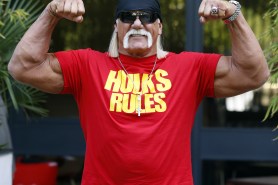Prime Minister Mark Carney called U.S. President Donald Trump‘s doubling of tariffs on steel and aluminum imports “illegal,” and said the federal government would take “some time” to consider its next steps.
Carney made the comments Wednesday hours after Trump’s executive order, which he signed Tuesday, went into effect for numerous countries including Canada, whose steel and aluminum industries demanded an “immediate” government response.
Trump’s order increases duties from their previous rate of 25 per cent, with the document saying it was necessary for national security reasons and to bolster those industries in the U.S., but added the original tariffs imposed in March didn’t have the desired effect.
There were no exemptions for Canada, but the U.K., which signed a new trade framework last month, will see its rate remain at 25 per cent.
“The latest tariffs on steel and aluminum are unjustified, they’re illegal, they’re bad for American workers, bad for American industry, and of course for Canadian industry as well,” Carney said.
He went on to note that Canada currently has counter-tariffs on more than $90 billion of U.S. imports before remission, saying the government has “acted strong” by putting those in place.
The prime minister told reporters that the government would “take some time” to determine the next steps as the two governments are in “intensive” discussions right now on the trading relationship.
During question period on Wednesday, Carney said that the government was preparing “reprisals” in response to the tariffs if negotiations with the U.S. do not succeed.
Canada’s steel and aluminum industries have warned that doubling the rate would have damaging impacts for producers and the North American supply chains.
“At a 25 per cent tariff rate, we saw significant layoffs, curtailed investments and a significant drop of shipments to the United States,” Catherine Cobden, president and CEO of the Canadian Steel Producers Association, said in a statement Wednesday.
“At a 50 per cent tariff rate, the U.S. market is effectively closed to Canadian steel, leaving billions of dollars of Canadian steel without a market.”
Cobden said steel industry and union leaders would be in Ottawa on Thursday to meet with key ministers and other officials and “urge immediate action for Canadian steel.”
About a quarter of all steel used in the U.S. is imported and Canada is its largest supplier.
“The steel and aluminum tariffs will apply only to the steel and aluminum contents of imported products, whereas the non-steel and non-aluminum contents of imported products will be subject to other applicable tariffs,” the White House said in reference to other countries.
The doubling comes slightly less than three months after Trump imposed the original rate, duties that were last seen during his first term in office on the same industries.
Canadian industry leaders have warned that North American supply chains could face “unrecoverable consequences” if the higher tariffs remain in place.
Cobden said in an interview with The Canadian Press on Wednesday that Canada could soon see imports from other countries shut out by the U.S.
“We’re going to be a deeply weakened sector in a very short time,” she said.
“We’re going to be inundated with steel that was destined for the United States diverting into Canada. We already have an unfair trade problem here, so it’s going to get much worse very, very quickly.”
Cobden said even under the original 25 per cent tariff, the steel industry has already lost about 700 jobs, and said Ottawa must reduce imports to the country so producers can recapture some of the domestic market.
The Aluminum Association of Canada said in a statement the tariffs will mean less demand across North America.
“It will impact workers on both sides of the border and disrupt key sectors including defence, construction and automotive,” said Jean Simard, the association’s president and CEO.
Industry Minister Melanie Joly told reporters on Wednesday that as the government talks with the Trump administration, it is working to create jobs in Canada through major infrastructure projects and investments in the defence sector.
“These tariffs are completely unacceptable, they’re unjustified, they’re unlawful and we’ll make sure that we fight against them,” Joly said.
Asked whether dollar-for-dollar tariffs would be possible, Joly reiterated Carney’s comments of counter-tariffs already in place, but added they planned to impose “maximum pain” on the U.S. while having “minimal” impact to Canadians.
“We need to make sure that in everything we do, we’re able to get to the best deal with the Americans but at the same time that we’re able to create and protect jobs here in the country,” she said.
Ontario Premier Doug Ford said it was “unfortunate” Trump moved forward on the doubling of tariffs and that he had spoken with LeBlanc and urged immediate action.
“It’s tariff for tariff, dollar for dollar, we need to tariff the steel coming into Canada at an additional 25 per cent totalling 50 per cent,” Ford said.
Liberal MP Terry Sheehan, who represents Sault Ste. Marie – Algoma where one of Canada’s largest steel companies resides, said Wednesday the government must respond and “hit back hard,” calling the tariffs “ludicrous.”
He said there is worry in his riding, as well as others with steel or aluminum companies, saying there’s a widespread impact from tariffs placed on these industries.
“If an industry goes down in northern Ontario, you just don’t lose your job, which is a terrible thing, you lose the equity in your home when those industries shutter,” he told reporters.
Dominic LeBlanc, the minister responsible for Canada-U.S. trade, was in Washington, D.C., on Tuesday and spoke with Commerce Secretary Howard Lutnick in what he called a “positive conversation.”
“Every time we sit down … we deepen our understanding in terms of the concerns they have around so many of these issues,” he told reporters.
“It’s an opportunity for us to also explain to them our firm position in terms of these tariffs being negative for the Canadian economy and Canadian workers, but also for the United States.”
LeBlanc did not, however, say if a possible exemption would be provided for Canada.
Unifor said in a release Wednesday that heightened tariffs on steel and aluminum are a direct threat to Canadian jobs and security, and also urged the federal government to act without delay to defend the industry.
“These tariffs are killing investment in our steel, aluminum, and auto sectors, and we are already seeing the consequences in lost jobs and economic instability,” said Unifor national president Lana Payne in a statement.
“We need immediate and forceful action to defend good jobs and safeguard our national economic security.”
The Canadian Labour Congress also said that as workers face the prospect of layoffs as a result of the doubling of tariffs, the federal government needs to boost supports including through emergency reforms to Employment Insurance and wage subsidies where possible.
But Bea Bruske added some job losses have already occurred and is why Ottawa needs to “meet force with force” ranging from counter-tariffs to ensuring no U.S. steel or aluminum is used in Canadian production.
“It’s critical because workers are facing job losses now, workers are wanting to know what our government is prepared to do,” Bruske, the president of the Congress, said. “We need to actually see proof in the pudding to actually see that this is happening and that government has a response.”
— with files from Global News’ Sean Boynton and The Canadian Press
© 2025 Global News, a division of Corus Entertainment Inc.












 Ad Choices
Ad Choices